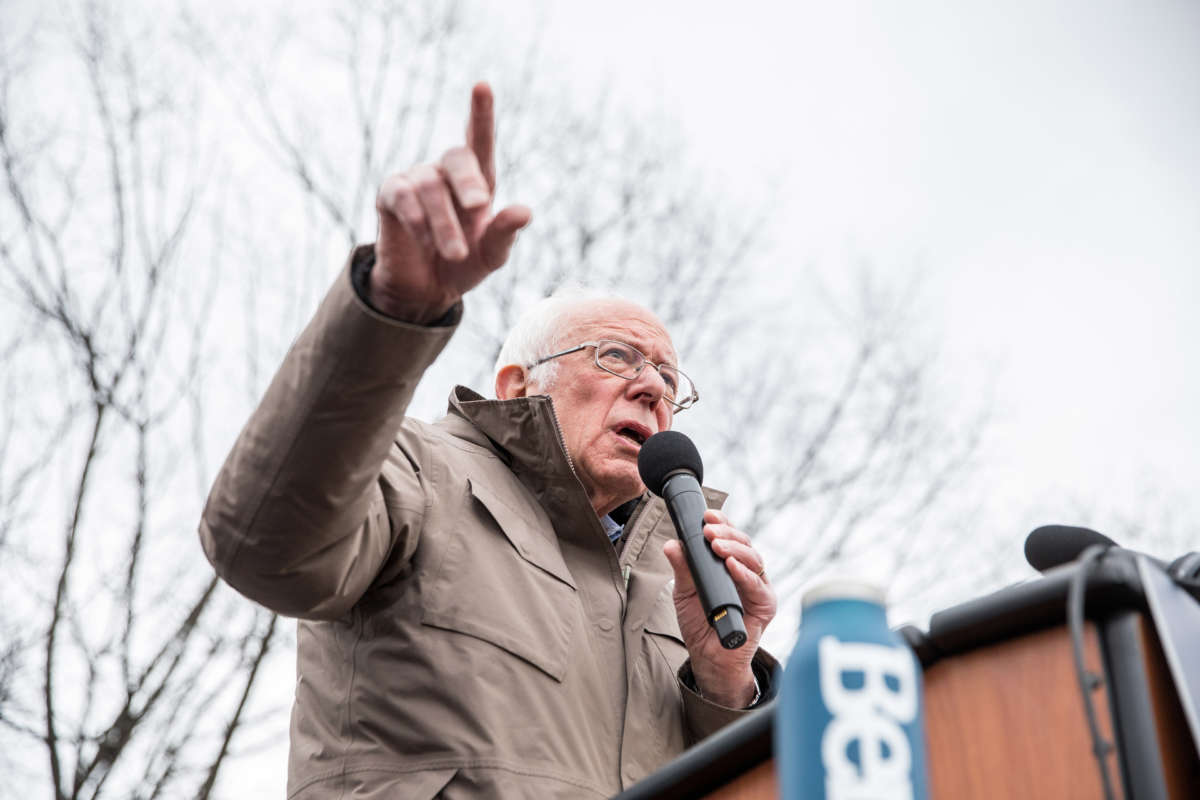A new report by the Institute for Policy Studies (IPS) finds that at 51 of the S&P 500 companies with the lowest median wages, CEOs received 29 percent higher salaries in 2020 while the median worker suffered a 2 percent pay cut.
CEO compensation among the 51 companies averaged $15.3 million in 2020, the report finds. Workers’ median salary, meanwhile, was $28,187 — 2 percentage points lower than it was in 2019.
The companies with the highest average CEO pay were, paradoxically, the ones that ended the year with net losses. Among the group, 16 “profit-losing, rule-bending corporations had the highest average CEO pay, at $17.5 million,” the IPS writes.
Of the 100 S&P 500 with the lowest median wages, IPS found that Hilton CEO Christopher Nassetta received the largest compensation in 2020. His $55.9 million compensation comes partially due to board members restructuring finances to boost Nassetta’s pay despite the company’s profits suffering overall.
While the company laid off 32,000 employees from its workforce, Hilton also slashed median worker pay from $43,695 to $28,608. This caused Hilton’s CEO-to-worker salary ratio to balloon to an astonishing 1,953 to 1. According to the report, Hilton’s board rationalized giving Nassetta a higher salary by claiming that not doing so would have “impaired the awards’ ability to retain key talent.”
Overall, on average, the CEO-to-worker salary ratio in 2020 at the 51 companies in question was a whopping 830 to 1.
By contrast, in 2019, the average CEO-to-worker salary ratio was 320 to 1 at the largest 350 firms in the U.S. — and even that is exorbitantly high by historical standards. In 1965, according to one metric, the ratio was 21 to 1, and in 1989 it was 61 to 1, the Economic Policy Institute (EPI) writes. Overall, from 1978 to 2019, CEO compensation, including stock awards, rose 1,167 percent. Typical worker pay at these corporations only increased by 13.7 percent in the same time period.
A report by EPI released last month found that decreasing unionization may be fueling the problem of low worker pay. In 2017, the report found, workers were actually making less per hour than they did in 1979 when adjusted for inflation, and overall were making the equivalent of $3,250 less per year while working full time. As workers’ pay has decreased, the report says, so has unionization and collective bargaining.
Sen. Bernie Sanders (I-Vermont) called the IPS’s findings “absurd” on Tuesday. “This is a rigged economy,” he wrote on Twitter.
To help relieve the problem of skyrocketing CEO pay, the IPS report authors recommend passage of the Tax Excessive CEO Pay Act. The bill, introduced by Sanders in March, tackles the issue of widening CEO-to-worker pay ratios by ratcheting up the corporate tax rate for companies with pay ratios of 50 to 1 or higher.
Under the bill, companies whose CEOs are paid 50 to 100 times their employees’ median salary would have their tax rate hiked by 0.5 percent. That percentage slowly rises until it reaches a max of 5 percent at a 500 to 1 ratio.
“Taking steps to tax extreme CEO-worker pay gaps would encourage large corporations to narrow their divides, either by lifting up compensation at the bottom of the corporate pay ladder, shrinking pay at the top, or, better yet, taking both steps together,” writes the IPS. “Such taxes on extreme pay ratios, at this point in time, could also generate significant revenue to invest in a more equitable Covid recovery.”
Putting a limit on CEO pay is popular among the public. According to a Sanders press release on the bill, 62 percent of Americans, including 66 percent of Democrats and 52 percent of Republicans, favor limiting the CEO-to-worker pay ratio to 6 to 1.
Join us in defending the truth before it’s too late
The future of independent journalism is uncertain, and the consequences of losing it are too grave to ignore. To ensure Truthout remains safe, strong, and free, we need to raise $44,000 in the next 6 days. Every dollar raised goes directly toward the costs of producing news you can trust.
Please give what you can — because by supporting us with a tax-deductible donation, you’re not just preserving a source of news, you’re helping to safeguard what’s left of our democracy.
